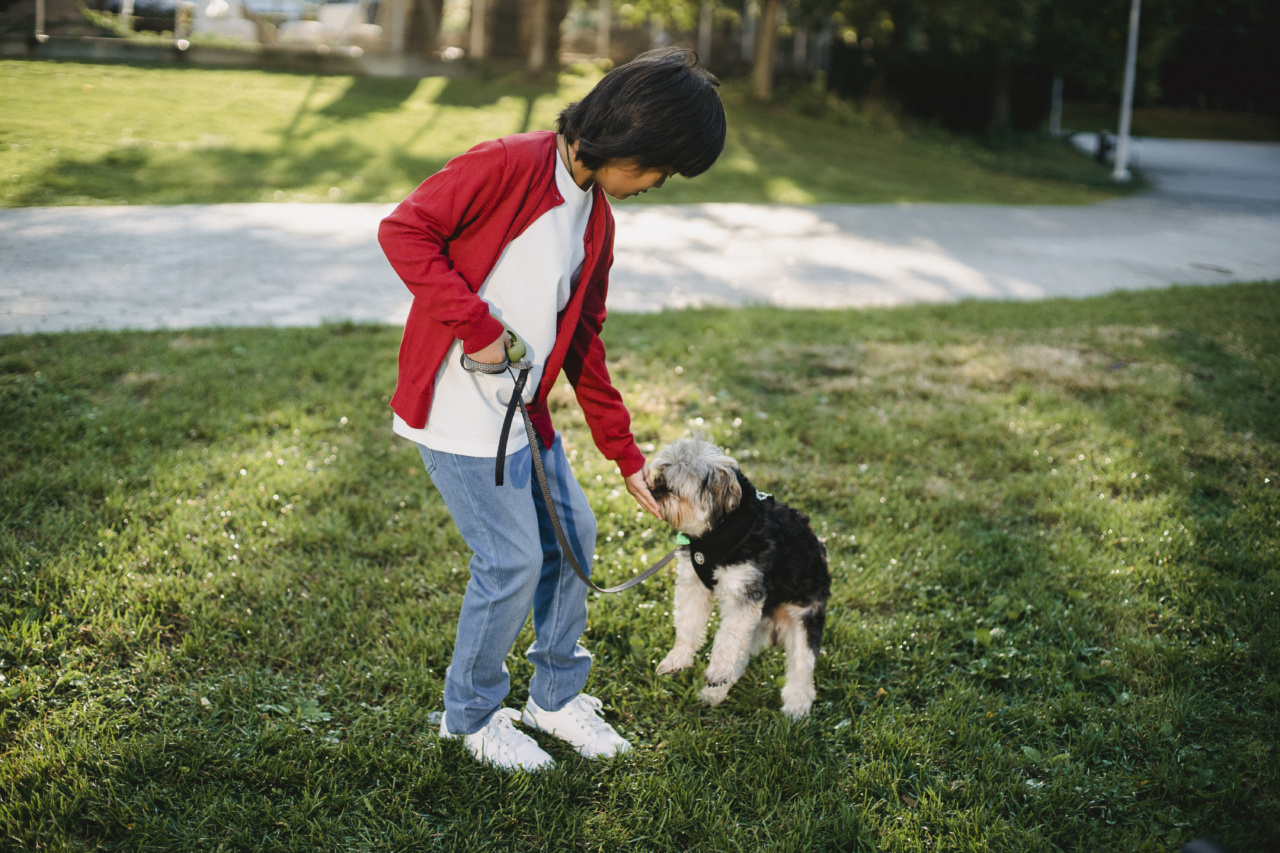For many pet owners, dogs are more than just animals; they are beloved members of the family. With their loyalty, affection, and companionship, it is no wonder that dogs often hold a special place in our hearts.
Some pet owners even go so far as to treat their dogs as if they are their own children, pampering them, spoiling them with love and attention, and even dressing them up in adorable outfits. But is it fair to treat dogs as if they are our children? This question has sparked debates among pet owners, psychologists, and even ethicists. In this article, we will explore this controversial topic from various angles to shed light on the matter.
The Emotional Bond Between Humans and Dogs
Humans and dogs have shared a deep and mutually beneficial relationship for thousands of years. Dogs provide companionship and emotional support, and numerous studies have shown the positive effects of owning a dog on mental and emotional well-being.
From reducing stress and anxiety to improving mood and alleviating loneliness, dogs have proven to be more than just pets.
People often form strong emotional bonds with their dogs, seeing them as trusted confidants and sources of unconditional love.
Dogs, in turn, are highly attuned to human emotions and can often sense when their owners are sad, stressed, or in need of comfort.
Dogs as Family Members
Many pet owners consider their dogs as valued members of the family, treating them with the same love, care, and attention they would give to their own children.
These pet parents provide their dogs with comfortable beds, nutritious meals, regular grooming, and even healthcare that rivals human standards. They celebrate their dog’s birthdays, include them in family outings, and indulge them in various activities.
From a psychological perspective, this phenomenon can be attributed to the human need for connection and belonging.
Treating dogs as family members helps fulfill emotional needs, provides a sense of purpose, and strengthens the bond between humans and their furry companions.
Similarities and Differences
While the love and emotional connection between humans and dogs may be strong, it is essential to acknowledge that dogs and children are fundamentally different beings. Dogs have different needs, abilities, and instincts compared to human children.
Unlike children, dogs are biologically and behaviorally distinct. They have a different cognitive capacity, language acquisition ability, and level of independence.
Dogs primarily communicate through body language and vocalizations, while children develop complex language skills over time.
Dogs also have different social structures and hierarchies. While children eventually grow up and become independent adults, dogs remain dependent on their owners throughout their lives.
Dogs require constant care, supervision, and training to ensure their well-being and safety.
Emotional Fulfillment
Treating dogs as children can provide emotional fulfillment and a sense of purpose for many. Some individuals may find that nurturing their dogs and fulfilling their needs create a sense of joy and satisfaction in their lives.
This emotional bond strengthens the relationship between owners and dogs, promoting a harmonious and fulfilling existence.
However, it is crucial to maintain a healthy perspective and recognize that dogs have their own unique needs and instincts.
Treating dogs solely as children without considering their inherent nature and requirements may lead to unintentional harm or misunderstandings.
The Potential for Anthropomorphism
Anthropomorphism refers to the attribution of human characteristics, behaviors, and emotions to non-human entities or animals.
While it is natural for humans to anthropomorphize animals, it is essential to strike a balance and not project entirely human qualities onto dogs.
Expanding on this notion, treating dogs as if they are our children can sometimes result in unrealistic expectations and misunderstandings.
Dogs have their own ways of expressing and experiencing emotions, and assuming they feel and perceive the world as humans do can lead to misinterpretations and unintended consequences.
The Impact on Human Relationships
While treating dogs as children may provide individual satisfaction and emotional well-being, it can potentially influence human relationships and dynamics within families or social circles.
In some cases, the intense emotional bond between an owner and their dog may create strains in interpersonal relationships. Family members or partners may feel neglected or jealous due to the owner’s undivided attention and focus on the dog.
Similarly, friends or acquaintances who do not share the same level of affection towards dogs may find it difficult to connect or understand the owner’s perspective.
Moreover, the act of treating a dog like a child can sometimes blur boundaries, leading to confusion and misunderstandings.
Miscommunication or disagreement regarding the appropriate treatment, discipline, or behavior expectations of the dog can strain relationships and cause conflicts.
Ethical Considerations
From an ethical standpoint, treating dogs as if they are our children raises questions about fairness, justice, and the allocation of resources.
Some argue that humans should prioritize the well-being and care of other human beings over that of animals, as we have a moral obligation and responsibility towards our own species.
Furthermore, the increasing obsession with treating dogs as children can divert attention and resources from pressing societal issues concerning human welfare.
Critics argue that while it is essential to care for animals, the prioritization of pet comfort and luxury can sometimes overshadow more urgent humanitarian concerns.
However, proponents of treating dogs as children emphasize the emotional fulfillment, joy, and companionship that dogs can bring to individuals and families.
They argue that society can and should care for both humans and animals simultaneously, as compassion and empathy are not limited resources.
The Importance of Balance
When it comes to treating dogs as if they are our children, striking a balance is key. Recognizing and meeting a dog’s inherent needs, such as physical exercise, mental stimulation, and social interaction, is crucial for their overall well-being.
Understanding and respecting the differences between dogs and humans is also essential. While dogs can provide emotional fulfillment and companionship, it is essential to avoid imposing unrealistic expectations and human values onto them.
Treating dogs with kindness, respect, and providing them with proper care can cultivate a healthy and mutually beneficial relationship.
Conclusion
Whether it is fair to treat dogs as if they are our children remains a subjective and multifaceted question.
While the emotional bond between humans and dogs is undeniable, it is important to remember that dogs are unique beings with their own distinct needs.
Treating dogs as family members can provide emotional fulfillment and joy, but it is crucial to maintain a balanced perspective and ensure their well-being.
Dogs should be treated with love, care, and respect, considering their inherent nature and instincts.
Ultimately, finding the right approach to the relationship between humans and dogs requires understanding, empathy, and a commitment to meeting the needs of both species.






























